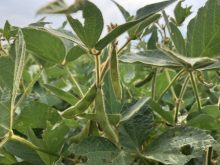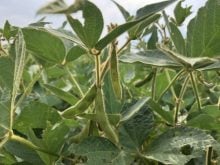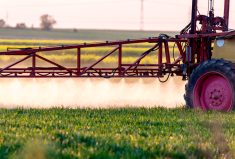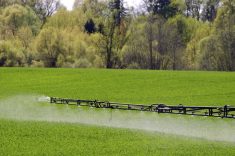Chicago | Reuters — Corteva will stop producing the agricultural pesticide chlorpyrifos by the end of the year, the company said on Thursday, removing the world’s largest manufacturer of a chemical that has been linked to low birth weight, reduced IQ and attention disorders in children.
Corteva, spun off last year after a merger of Dow Chemical and Dupont, said declining sales drove its decision to end production and officials continue to believe chlorpyrifos is safe.
The company’s move reflects a shift toward newer products in the $14.5 billion global agrichemicals industry amid increased regulatory restrictions on chlorpyrifos (all figures US$). Environmental groups have pushed regulators to ban uses of the 55-year-old pesticide over concerns it harms people and wildlife.
Read Also
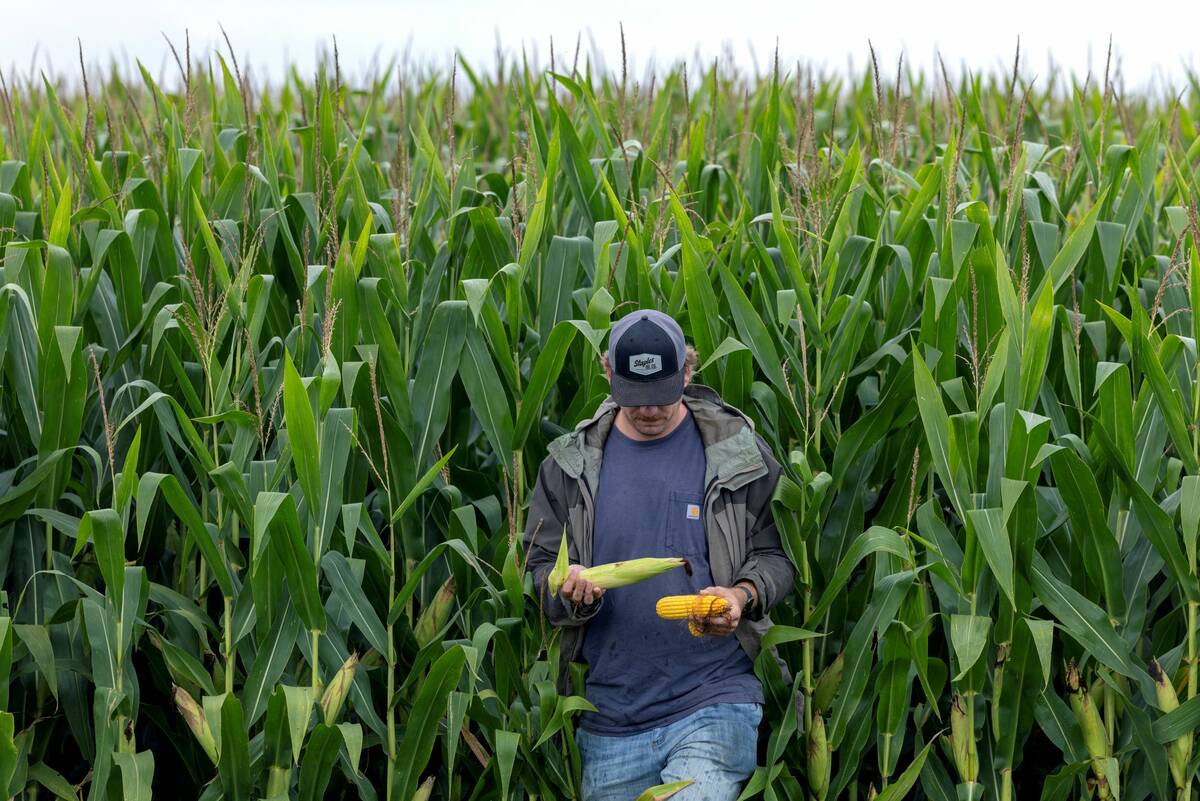
The U.S. corn crop could be the biggest ever. That’s terrible news for America’s farmers.
The USDA predicts a record corn crop for U.S. farmers, who question the agency’s accuracy amidst high debt and low crop prices.
“We’ve made the difficult decision to stop our manufacturing of chlorpyrifos,” Susanne Wasson, president of Corteva’s crop protection business, told Reuters.
In the U.S., Corteva’s biggest market for chlorpyrifos, demand is less than 20 per cent of what it was during its peak in the 1990s, the company said. Industry sales were $350 million in 2005, down 45 per cent from 1990, according to Corteva.
By volume, estimated use dropped to under five million pounds in 2016 from about 13 million in 1994, U.S. Geological Survey data show.
Re-evaluation
In Canada, chlorpyrifos has been registered since 1969 and is used to control certain cutworms in corn and potatoes, midge in wheat, and grasshoppers in cereal crops and canola.
Sold in Canada at the farm level under brand names including Corteva’s Lorsban, Adama Canada’s Pyrinex, Cheminova’s Nufos and Ipco’s Citadel, the chemical’s product labels also make note of its “acute mammalian toxicity.”
Health Canada’s Pest Management Regulatory Agency (PMRA) launched a re-evaluation of chlorpyrifos in 2018. Last summer the agency published a proposal calling for cancellation of almost all uses of chlorpyrifos except in mosquito control and non-residential indoor and outdoor “structural” use.
PMRA’s document acknowledged the product’s “value to agriculture and other sectors” but also proposes to cancel “almost all agricultural uses” except in outdoor and greenhouse ornamentals. The agency’s final re-evaluation decision is still pending.
Sales
Lorsban is also up against competition from various generic versions as well as other insect controls such as genetically engineered crops, treated seeds and other chemistries.
Demand for chlorpyrifos is expected to drop further amid regulatory restrictions, including an EU decision to ban uses of the pesticide, Corteva said.
On Thursday, manufacturers must stop sales in California under an agreement with the state, which says chlorpyrifos is harmful. California farmers cannot possess or use chlorpyrifos products after Dec. 31.
“Children and farm workers in California will no longer be exposed to this neurotoxic pesticide that can permanently impair the brain and nervous systems,” said Ken Cook, president of Environmental Working Group, an activist organization.
The U.S. Environmental Protection Agency reversed a ban on chlorpyrifos use on farms under President Donald Trump, saying there was not enough evidence to link it to children’s health problems.
Corteva said it will continue to support chlorpyrifos in an EPA review.
“We believe in the product,” Wasson said.
Corteva previously agreed to sell chlorpyrifos assets in India and has assessed its portfolio to ensure it is the best owner of businesses. Sales in its crop protection unit dropped three per cent to $6.26 billion in fiscal year 2019.
— Tom Polansek reports on agriculture and ag commodities for Reuters from Chicago. Includes files from Dave Bedard of Glacier FarmMedia.



